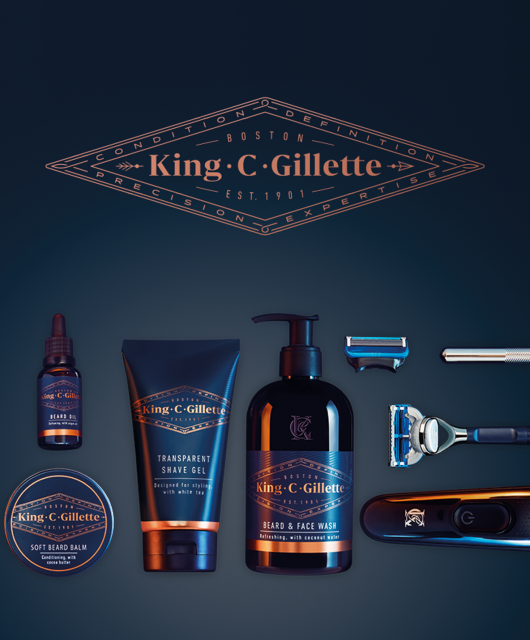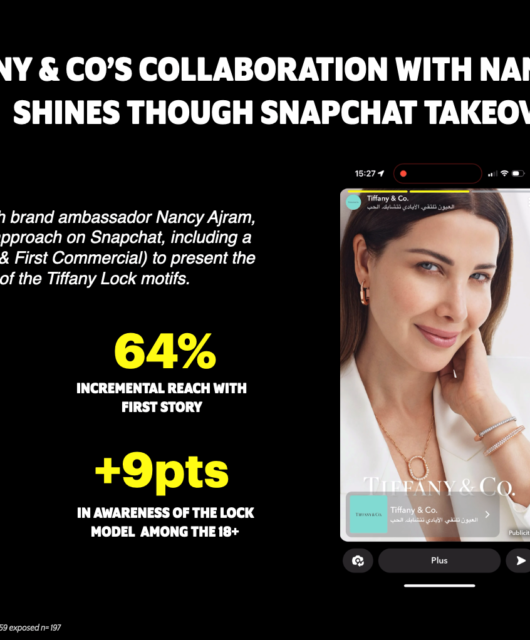Coronavirus: Brand Moves
Week: May 25th – 29th
by Interbrand
The latest of Interbrand’s regular round-ups of brands’ responses to the global COVID-19 pandemic

Technology
TikTok, the video app owned by China’s ByteDance, which has become wildly popular among locked-down teenagers, has hired Walt Disney Co’s top streaming executive, Kevin Mayer, as chief executive officer. Mayer led the successful launch of the Disney+ streaming service in November but in February was passed over as Disney’s new chief executive. Mayer will also become chief operating officer of ByteDance, the Chinese company said. TikTok, which allows users to create short videos with special effects, has become popular with US teenagers doing viral challenges that pair dances with music clips from the app’s library.
TikTok has hinted at ambitions to build a music streaming business, announcing in January that it was partnering with the UK-based music rights agency Merlin to expand its musical selections. The hiring also suggests that ByteDance is looking to bring more of its apps to the US, potentially starting with its Facebook-like Helo platform.
Character-collecting AR smartphone game Pokémon Go from developer Niantic went viral in 2016. However, a game that involved going outside and socializing instead of sitting on the couch with the shades drawn was a poor fit in the age of COVID-19. So Niantic has turned Pokémon Go into a game that can be more comfortably played from home. A mid-April update helped players hit PokéStops, hatch eggs, and complete raids without getting too close to other people and without traveling to locations blocked off during the quarantine.
They’re also changes that Pokémon Go players who live in rural areas or who have mobility-related disabilities have been asking for for years. “We based our whole company around these three principles: we want our games to encourage people to exercise, to explore new places, and to play together in real life,” Pokémon Go developer Niantic’s CEO John Hanke said. “So all three of those things are challenged in a coronavirus world. We’ve tried really hard to find solutions that adapt the game to the current environment but don’t undermine the core essence of the game.”
Alibaba plans to invest 10 billion yuan ($1.15 billion) to boost its artificial intelligence (AI) and Internet of Things (IoT) ecosystem to support its smart speaker, Tmall Genie. This will include integrating Alipay miniapps as well as more content and services from Alibaba’s wider ecosystem which spans entertainment, healthcare, online shopping, and education. The Chinese e-commerce giant also plans to develop proprietary AI and IoT technologies to enhance natural voice and visual interactions between the smart speaker and consumers.
This development work will be carried out in collaboration with its cloud and R&D units, Alibaba Cloud and Alibaba DAMO Academy, respectively. From July 1, mini-apps currently running on its mobile payment platform Alipay will be integrated with Tmall Genie, Alibaba said. In addition, its live streaming service featuring merchants on its Taobao online marketplace can be viewed on the smart speaker’s screen. More than 1,100 brands currently connect with Tmall Genie, as well as 270 million devices in China, providing various services to fulfil various needs in consumers’ daily lives.
Citing research firms IDC and Euromonitor, Alibaba said Tmall Genie accounted for more than a 35% share of the Chinese market and led the country in terms of unit shipment. According to stats from Canalys, some 3.89 million units of Alibaba’s smart speaker were shipped in the third quarter of 2019, up 77.6% from the year before, which accounted for a 13.6% global market share. Genie is currently only available in China.
Chinese tech giant Tencent has said that it will invest 500 billion yuan ($70 billion) over the next five years in technology infrastructure including cloud computing, artificial intelligence and cybersecurity. Other key sectors of the investment include blockchain, servers, big data centres, supercomputer centres, internet of things operating systems, 5G networks and quantum computing,
Dowson Tong, senior executive vice president of Tencent, told state media. Tencent is best-known for its WeChat messaging app and a range of popular games but is aiming to expand into business services as consumer internet growth slows and companies shift number-crunching from their own computers to the cloud.
Tencent has said while cloud businesses suffered amid the COVID-19 outbreak it expected to see accelerated cloud services and enterprise software adoption from offline industries and public sectors over the longer term. “Expediting the ‘new infrastructure’ strategy will help further cement virus containment success,” Guangming Daily quoted Tong as saying. Tencent Cloud had 18% of China’s cloud market in the fourth quarter, trailing Alibaba which commanded 46.4%, according to research firm Canalys.
Retail & Manufacturing
Facebook is making a major new push into e-commerce. The company today announced the launch of Shops, a way for businesses to set up free storefronts on Facebook and Instagram. The shops, which will be powered by third-party services including Shopify,
BigCommerce and Woo, are intended to turn the social network into a top-tier shopping destination. CEO Mark Zuckerberg said expanded e-commerce would be important to begin rebuilding the economy while the pandemic continues. “If you can’t physically open your store or restaurant, you can still take orders online and ship them to people,” he said. “We’re seeing a lot of small businesses that never had online businesses get online for the first time.” Online sales have been a bright spot for small businesses.
At Etsy, where solo entrepreneurs have been knitting fabric face masks and baking pastries for sale, revenue has doubled from three years ago. While Shops are free to create, they could create significant new business opportunities for Facebook in advertising, payments, and other services. Businesses will be able to buy ads for their Shops, and when people use Facebook’s checkout option, it charges them a fee. Facebook is also working to integrate loyalty programs. Shops will begin rolling out on Facebook today in the United States and is coming to Instagram this summer.
Cosmetics and skincare company e.l.f. is recalibrating its product lineup to include more skincare and health and wellness products, as demand for those items has spiked during the pandemic. In particular, the company launched a line of full spectrum CBD products, which have trace amounts of THC, including a facial oil, an eye cream, a body cream, and a moisturizer.
The CBD line caters to consumers’ need for a moment of calm and self-care, especially in this anxiety-ridden moment for the world, according to CMO Kory Marchisotto. “What we see now is a blurring between wellness and beauty,” she said. Being first to market with innovative products is one of the things e.l.f. prides itself on, Marchisotto said. “One of things e.l.f. does brilliantly is we build on demands we hear, sentiment we hear.”
Fashion label Gucci’s creative director, Alessandro Michele, has announced that the brand is slashing the number of fashion shows it holds each year from five to two. Declaring the fashion week calendar obsolete, Michele said he was no longer adhering to a rota staked out by spring/summer, autumn/winter, cruise, and pre-fall shows. Instead, the brand will show “seasonless” collections twice a year.
There are no plans for a show in September, when the Gucci collection would normally be staged as a key part of Milan fashion week. Dries Van Noten has also led a number of independent designers calling for a radical overhaul of the industry, with fewer fashion shows and less product. The biggest labels, which have a financial cushion to ride out the economic crisis, have so far been less motivated to change than smaller brands.
But by throwing their weight behind the forces of change, Gucci could shift the conversation. Last month, Saint Laurent announced it would sit out Paris fashion week this September and set its own schedule going forward. Overhaul of the fashion week system has been mooted for years, but in 2020 change seems to be becoming an economic necessity. Kering and LVMH, the two largest luxury groups, recorded a drop in revenue of about 15% for the first three months of this year.
London fragrance maker Earl of East, in collaboration with agency Uncommon Creative Studio, has released a range of scented candles called “Scents of Normality” – a collection that smells like the places people have missed the most during lockdown. The three scents are The Festival (“a floral haze of cut grass, burned skin and sun-warmed cider, with just the merest shimmer of distant portaloo. Top notes of burger van and singed candyfloss…”),
The Local (“evokes the classic British boozer. Top notes of spilt beer, hair pomade and chip fat jostle amongst a pungent base of varnished teak and sticky carpet… ”) and The Cinema (“a heady fusion of salt popcorn, foam banana and glistening hot dog, enveloped in a fug of recirculated air…”) More seriously, all proceeds go to Hospitality Action, a charity that offers vital assistance to all who work within hospitality in the UK, and who now face sudden hardship and widespread job losses due to COVID-19.
Renault and Nissan have apparently shelved plans to push towards a full merger and will instead fix their alliance to try to recover from the coronavirus pandemic. With carmakers around the world reeling from the pandemic, the partners are planning to overhaul an alliance that largely failed to convert its global scale into a competitive advantage beyond the joint procurement of parts. Both struggling carmakers are set to announce mid-term restructuring plans designed to resolve long-standing tensions. Nissan and Renault are each planning substantial restructuring and cost cuts; the crisis at both carmakers has accelerated efforts to resolve disagreements that have hurt collaboration and cost-sharing in technology and product development for five years. The alliance also includes Mitsubishi Motors.
Travel & Hospitality
Recreational vehicles, or RVs, could be among the big winners for summer vacations this year, according to U.S. travel industry experts. Mark Wong, an exec at Small Luxury Hotels of the World, said “road trips – the drive market – will be this summer’s trend. Travelers will be more comfortable hopping into their own cars or rental vehicles than commuting in mass transportation.”
Nicholas Devane, owner of RV rental company Texino, agreed, saying: “I think corona is making people rethink what vacation looks like. What is their ability to travel without going through airports? Camper vans and RVs are a great way to do that.” Miami’s Ondevan said it’s seen success by focusing on South Florida locals who want to take road trips while they work remotely, and San Diego company AdventureKT said natives have taken up the slack left by out-of-towners and foreigner who have canceled.
Now four-year-old company RVshare, a Turo for the RV market, reports that bookings for summer have set new records by shooting up 650% since last month. 84% of renters say they plan to travel with a partner or close family, and 93% of renters say their first priority is avoiding crowds and crowded vacation spots.
Though travel is still very heavily impacted, Delta Airlines has seen a slight increase in bookings. “We have seen a bounce off the bottom,” said Delta CFO Paul Jacobson. “There are reasons to be encouraged about what we’re doing at Delta.” Jacobson said that on some days the airline saw positive net sales, meaning more people were booking than asking for refunds, specifically pointing to an uptick in June and July travel planning.
Delta has since responded to the inching demand by adding back flights, but still capping its capacity at 60%. United Airlines has also said that as of this week, the airline had “seen a reduction in customer cancellation rates” and a “moderate improvement” in domestic demand as well as “certain international destinations” in the latter part of Q2. Jacobson prefaced his comments by noting that it was still too early to tell if this was truly a sign of recovery, and that with refunds still available, the bookings don’t quite mean much until travelers are boarded and buckled in.
“We’re still a fraction of where we should be,” he said. “We’re cautious.” He also echoed Delta CEO Ed Bastian’s belief that it could take at least three years before the airline reached sustainable recovery levels.
The legendary Venice Simplon-Orient-Express luxury train will be returning to the tracks on July 8. The opening journey will be between Venice and London, with further dates and routings to follow shortly afterwards.
Roeland Vos, CEO of luxury travel company Belmond which operates the service, said he was “truly excited” at the prospect of the resumption of services. He said there was a lot of pent up demand from travelers for what is considered the ultimate luxury train experience, and offered assurances that the train would be adapted with the introduction of special protocols designed to meet the new need for social distancing.
“We will have fewer passengers on board and there will be much more space between them in the dining car,” said Samantha Strawford, Belmond’s Global Brand Director. “There will be more in-cabin dining and not all cabins will be occupied.
We are also working through different scenarios for ensuring more distance is kept between passengers on the trains and the introduction of regular deep clean operations.” Travelers on the train starting or ending in Venice will also be able to stay in the city’s celebrated Hotel Cipriani – which on June 19 will be one of the first Belmond hotels to reopen following the virus.
Another opening that day will be the Hotel Splendido in Portofino. Belmond plans to announce further dates for train journeys to and from Venice, but also on its other luxury trains, including the Andean Explorer in Peru, the Eastern & Oriental Express in south-east Asia and the Royal Scotsman. There are also a host of further hotel reopenings in the pipeline. “The pandemic means that we won’t see the world in the same way again,” said Mr Vos. “Rather than travelling so fast, we will probably travel more slowly, but more consciously. It will be a brand new world, but it will still be deeply enriching.”
Ride-hailing service Bolt has raised 100 million euros ($109 million) in a deal valuing the European rival of Uber at 1.7 billion euros. Bolt said the funding would allow it to grab market share in a sector hurt by COVID-19, as lockdowns have kept customers indoors, and rivals Uber, Lyft and Ola cut thousands of jobs.
“In the next 12-18 months we have an opportunity to win market share,” Bolt founder and Chief Executive Markus Villig said. “Even though the crisis has temporarily changed how we move, the long-term trends that drive on-demand mobility such as declining personal car ownership or the shift towards greener transportation continue to grow.” Bolt offers also scooter rental and food delivery. It has expanded its food delivery business to 15 countries from four this year as demand has surged. The 2013-founded Bolt — which has over 30 million users in 35 countries — has mostly won business from Uber in major African cities and Eastern Europe.
Property & Finance
UK property website Zoopla has suffered from the housing market’s dead stop, but have rethought their marketing, including hosting a competition on social media to encourage people to submit their best pictures of the forts they’ve built, along with an estate agent style caption describing their structures.
Over 900 people have participated so far – a number impressive enough for head of consumer marketing Richard Houston that he’s mulling how it can continue to use social to better effect as the market begins to recover. “Since the announcement [of sales to restart] on Wednesday, search is up by 139% versus the last four weeks,” he says.
“We’re optimistic with that news.” And while there’s been some controversy over the government decision to allow the public to view property in person, Zoopla is nonetheless beginning to ramp up its marketing activity to explain the situation to wary buyers and sellers. It hosted an exclusive conversation with the UK’s housing minister on its blog, while its content marketing team has been in overdrive trying to help people make sense of the new rules.
“We’re using our in-house research and insights team to really help people understand the impact of the government changes, the health of the market and the potential outlook over the next nine months,” says Houston. “What we’re trying to do with any of our strategic thinking and marketing planning for the rest of the year is to pull back to the fact that this has been a really disruptive time for people, particularly if they’re trying to move home.”
To read the full report, please download here.
To access daily Brand Moves, please visit www.brandchannel.com.





